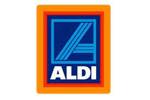Frequently Asked Questions
WEEE is an acronym for Waste Electrical and Electronic Equipment
Producers that place more than 5 tonnes of EEE onto the UK market (large producer) must:
- register with an environmental compliance scheme to fulfil their legal obligation
- complete annual or quarterly submissions of your placed on market data for WEEE
- ensure EEE is marked with the appropriate labelling requirements i.e crossed out wheelie bin symbol, the actual date the EEE has gone onto the market and a producer identification mark e.g. brand
- assess your WEEE distributor obligation and if required provide a way for your customers to dispose of their old household EEE
Producers that place 5 tonnes of less of EEE onto the UK market (small producer) must:
- register directly with the environment agency or compliance scheme to fulfil your obligation
- complete an annual submission of your place on market data for WEEE
- ensure EEE is marked with the appropriate labelling requirements i.e crossed out wheelie bin symbol, the actual date the EEE has gone onto the market and a producer identification mark e.g. brand
A WEEE registration will be assigned when a producer becomes compliant with the WEEE regulations. The number will serve as proof of the registration of the manufacturer, the brand and type of electrical or electronic equipment carried out in the country of manufacture.
A small producer (placing 5 tonnes or less) can register directly with the Environment Agency, however a large producer (placing over 5 tonnes) must register through a compliance scheme.
Yes, the consultation on the reform of the WEEE regulations is due imminently. Find out what we know so far here.
Electricals must be collected and recycled by an Approved Authorised Treatment Facility (AATF). Beyondly’s WEEE collection service work with a UK wide network of AATFs and can facilitate collections for any organisation. Beyondly can in some cases offer rebates on collected waste electricals alongside all the required duty of care paperwork.













